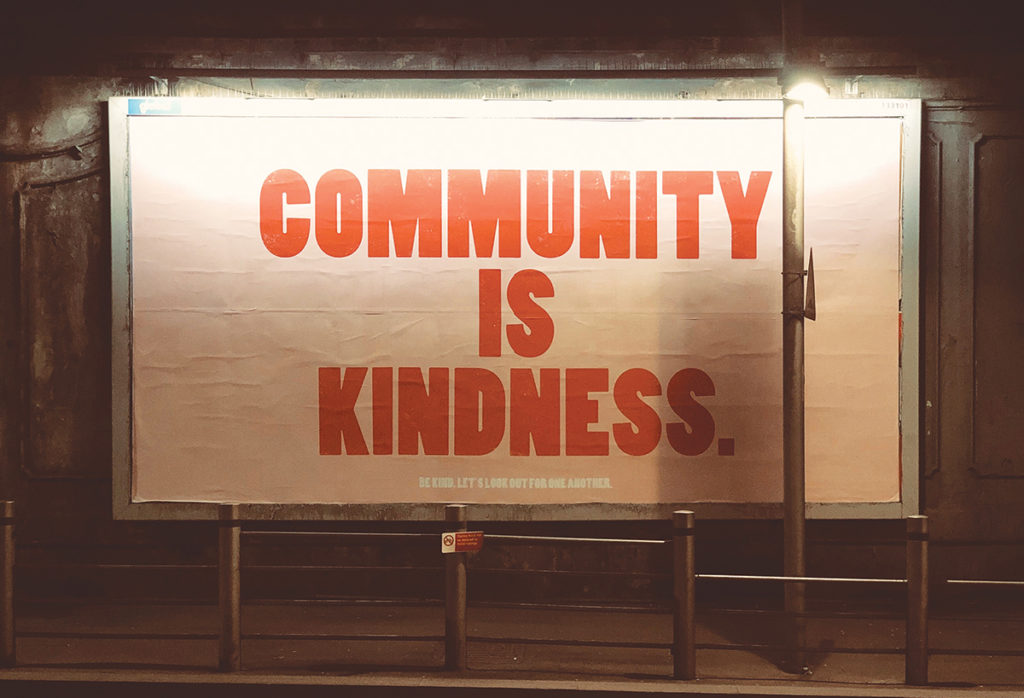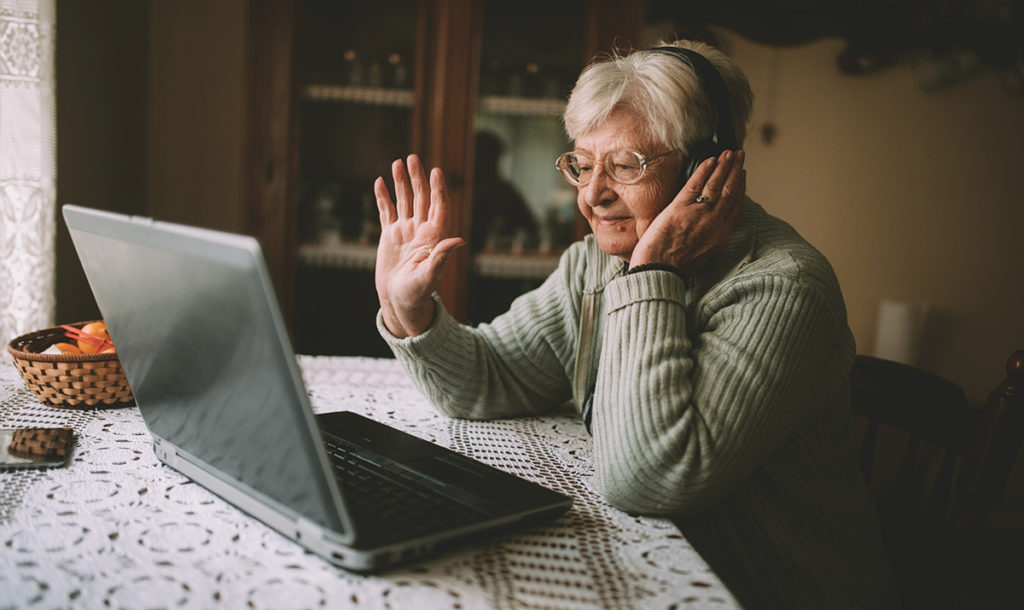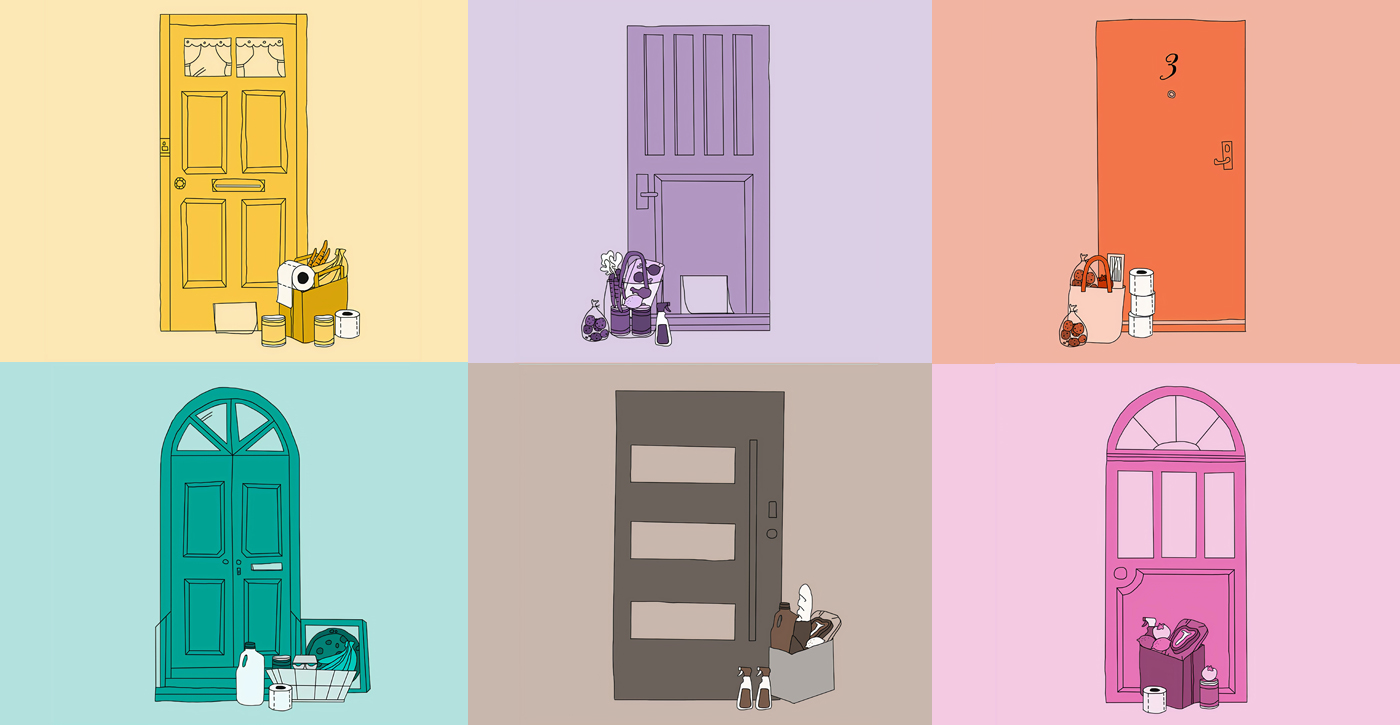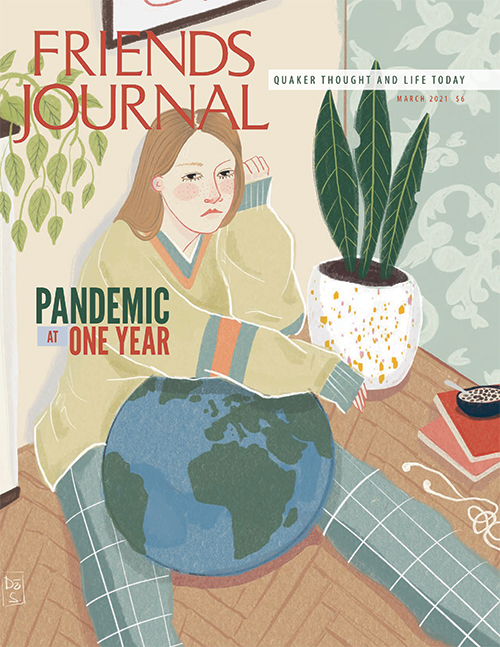Living in Our Post-COVID-19 World
Post-apocalyptic literature and films have long held a fascination for me. Ever since as a six-year-old I discovered World War I gear stashed in the basement of our home in a metro Philly neighborhood, I have wondered what it is like to live amid catastrophe and chaos. I had wondered how I would behave, how I would talk, how my loved ones and I would survive. Thriving during an apocalypse was not something I imagined. Today, I see new ways of being in community are already emerging.
The United States has long assumed that our economic system, our Western way of life, and our extractive treatment of the environment are all rights given to us. Before the COVID-19 pandemic, our economic system had created a narrative that our way of life—growth at any expense, chronic gaps between the wealthy and the impoverished, and damaging the environment—was a necessary evil. No reasonable person would have expected the entire world could stop in the blink of the eye. Not only has the world stopped off and on over this past year, we have witnessed transformations of the environment, of people, and of policies.
We are now living in a post-COVID-19 world. We are also living in a post-climate-change-disruption world and an undoing-racism world. Tears have been flowing as educators and families struggle with the 2020-21 school year. We wonder how we will work moving forward. There have been stories of cities and countries across the world that have redesigned their economies during this time. In Australia, people pulled together to take care of one another. Marylouise McLaws, a Sydney-based epidemiologist at the University of New South Wales and a World Health Organization adviser, was quoted in a November 5, 2020 Washington Post article:
leaders from across the ideological spectrum persuaded Australians to take the pandemic seriously early on and prepared them to give up civil liberties they had never lost before, even during two world wars. We told the public: “This is serious; we want your cooperation.”
Their country hit the pause button on rent collection, and ensured financial support for people. They pulled together as one people; they belonged to one another.

Photo by Etienne Godiard on Unsplash
What if we all knew we belonged? What if we believed we all were in a union of trust, hope, and love even as we mark the first anniversary of this pandemic? Friends meetings in my region of Greensboro, North Carolina, have stayed in contact with each other over the past year. We are learning from one another while also charting individual responses based on the culture of each meeting. Our monthly meeting for business established a COVID-19 Working Group. Other meetings created task forces or small working groups to collect the science while listening for the cares and concerns of their meetings. A few held outdoor worship or small faith group gatherings, placing chairs at least six feet apart or tuning into a radio station specially created for them.
Many of us found distant Friends returning to visit. New people are arriving to become regular attenders through the weekly Zoom video conferencing worship. In our community, our committees and monthly meeting meet via Zoom. All who come to the Friendly virtual world receive support from our tech team. Others are included through old-fashioned outreach, as we also call or send cards through the U.S. mail system. We try to ensure that all know they belong. And we’ve zoomed into renewed commitment to undo racism, and to improve our care for the environment through recycling and solar energy programs.
As we experience tremendous disruption, we benefit from expanding our capacity to see and hear others, becoming openhearted, and recognizing our connectedness with other people and all creation. Together, we can sense and create the way to move beyond just surviving. Holding this possibility as our future reality serves as a Quaker-informed framework for pausing to see the great potential we have in creating a better way of living in a post-COVID-19 world.
TOGETHER, we can sense and create the way to move beyond just surviving. Holding this possibility as our future reality serves as a Quaker-informed framework for pausing to see the great potential we have in creating a better way of living in a post-COVID-19 world.
We often call a congregation of people seeking Spirit a meeting or a church. When the meeting works well, community life is generative; our belonging to one another is evident when “a cord of three is not quickly broken” (Eccles. 4:12). Diana Butler Bass in A People’s History of Christianity cites religion sociologist Rodney Stark in suggesting the success of Christianity in the ancient world was due to its promise to deliver “potent antidotes to life’s miseries here and now!” Changed lives occurred because of changed hearts, minds, and actions, and so life within these communities changed for the better.
Process theologian Sallie McFague, Friend Doug Gwyn, and Pope Francis all point to the same core mystery of faith. If we can forge a life together with a shared mystery of faith, we might find life is improved. We must name the harm our current economic system has inflicted on people and the planet, and, importantly, we must commit to making the changes needed to restore right relationships.
Our home, our earth, is one manifestation of Christ, the body of God. We have scarred our earth, yet our earth heals. In just a handful of weeks, we saw a change for the better. We can heal if we tend to our wounds. The real embodied mystery is that God desires our well-being. Our post-COVID-19 world has revealed a different pathway to our future. Our earth has offered us an additional path for our saving it as well as our very lives. Feeling for one another, compassionate witnessing of others’ suffering, enables us to belong to one another and commit to alleviating suffering. When we examine the truth of our own lives, we can bring our understanding, love, and compassion to the world.
Compassion in action is needed today. The virus is here, and it is not going away. COVID-19 joins the pantheon of human ailments. In this moment of pandemic crisis in the United States, we have glimpsed the vast pre-COVID-19 inequities in healthcare, education, and housing that are baked into this society. Our post-COVID world will be one where we continue to reimagine Black Lives Matter and where we seek justice for the oppressed and occupied people around the world. Now that we have witnessed the truth of our condition, we are morally obligated to ask: what are we to do?
We are to express real generosity and loving acts of growing and sharing food; maintain compassionate physical distancing; and acknowledge those workers who risk their lives to care for others, keep the grocery stores open, and take the garbage out. We are to hold corporations accountable in making a real commitment to reducing their carbon footprint through alternative energy sources.

Photo by Dragica
Our meeting continued our work throughout 2020. We committed to undoing racism one small step at a time, starting with learning to see, hear, and speak in new ways. More and more people in our society are hearing the voices in our streets calling for justice and mercy for all. For many years, Reverend William Barber has been calling for the reconstruction of our society using moral guidelines. Perhaps our post-COVID world will not be apocalyptic; perhaps we can do this hard work; maybe we will be all right!
When we allow light into our hearts and consciousness, we may well find the money needed to feed the children left hungry by school closures. We can get them the computers they need for education and Internet connectivity to their neighborhoods, so they can stay safe and keep up their learning.
Moving into this post-COVID-19 world, we must be more deliberate in caring for everyone’s health. It is possible to ensure that everyone has enough healthy food to eat. We must be prepared to continue compassionate physical distancing in our schools, workspaces, public gatherings, and church spaces. We have learned that much of our work can move to the virtual space, and when we are together in physical proximity, we are much more careful. We will worship together, and will pray, play, and laugh together again. Our universal Christ teaches us that life has beauty, goodness, and critical opportunities to be the change we wish to see. I can see the sparkling skies, the restoration of the fragile life at the oceans’ edge and in the ocean’s depths, and I commit to the following: I will pollute less; consume less; care more for the vulnerable people in my congregation, my neighborhood, and the world. Love will not let us go; love abides.
The next time you enter worship, either alone or in community, consider this query: When thinking about our post-COVID-19 life, what will we—each of us—do to belong to one another, to be the change we wish to see?




Such a moving article Jaimie…now, all is in proper perspective for me!
Such an excellent reminder of who we are during this time, how we can act, what we can do. As someone who has long been taken in by Asian families, someone who has been loved and welcomed by them, I feel called to remind you, my Friends, to be aware of the hard times and discrimination they are experiencing and feeling these days. Any small or large thing you can do, and most of all your compassionate awareness, will really make a difference in our world. Thank you, Jaimie.
Thank you Sharon for reminding us that compassionate awareness makes a difference!